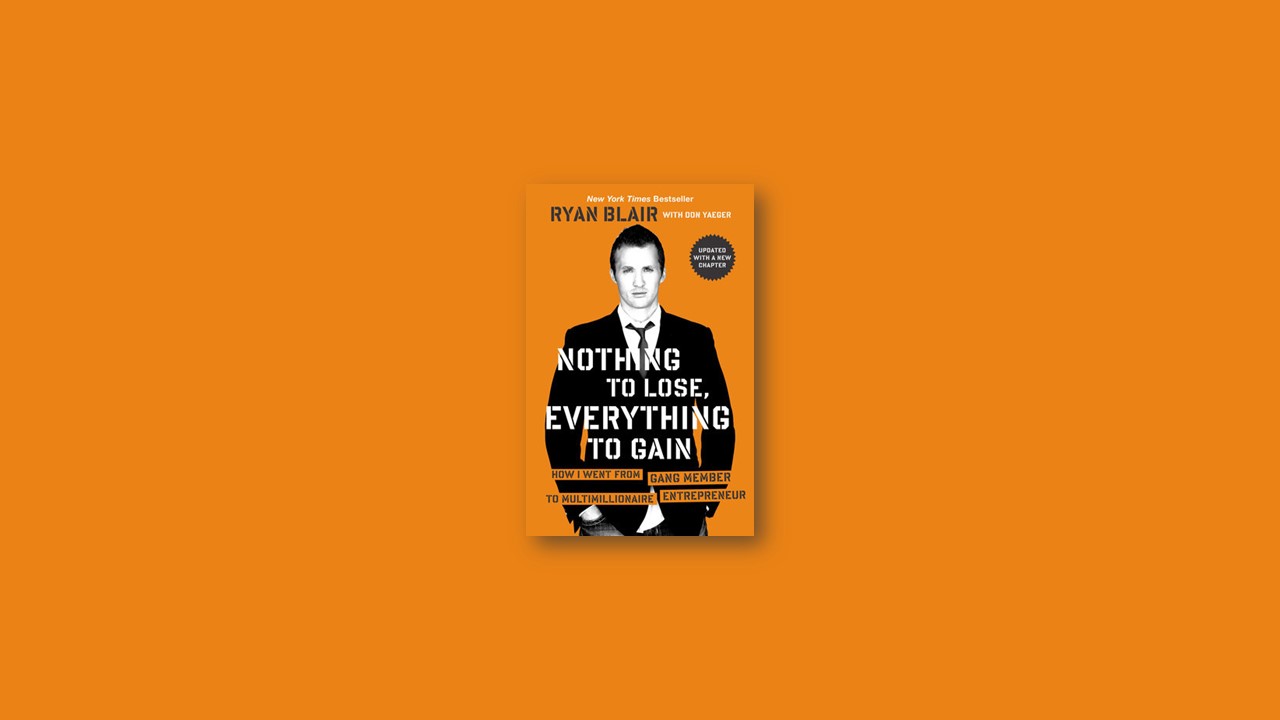The Nothing-To-Lose Mind-Set
There is nothing more dangerous than someone with nothing to lose. Usually a series of losses will trigger it. You might have gotten laid off, or lost your home, or are going through a messy divorce. You may have started a business and failed. Maybe you’ve had to couch-surf for the first time since you were in your twenties. After a combination of events like these, one after the other, you realize one day that you’re at the bottom.
This is where a nothing-to-lose mind-set comes from.
Like an animal backed into a corner, your survival instincts kick in. Now, there are two types of people. There is the type who will ignore his instincts and cower and submit. This is a domesticated person, and with enough pressure, he is the one who will take a route to a lesser existence, give up, or commit suicide. Then there is the type who, no matter how desperate the circumstances, obeys his instincts and fights. And just like that animal backed into the corner, there is nothing more dangerous.
It’s time to listen to those instincts and start fighting as if you have nothing to lose.
Philosophies From The Jail Cell To The Boardroom
You don’t have to be brilliant to be successful. But you do need to have solid philosophies and some kind of spirituality or enlightenment that will give you the foundation upon which you can build everything else, such as work ethic, integrity, and character. You also have to have rules by which you operate your business—the Golden Rules
These are the principles that affect the way you think and the way you act and react. These aren’t necessarily moral rules, though those are certainly important. The basic principles of business ethics are generally the same across the board. They don’t vary much from business to business (though whether everyone operates by these universal standards is, unfortunately, another issue entirely). Your Golden Rules of business are a little different. They should be the ideas that shape your philosophies for management, sales, and networking, and for how you regard failure—and these are going to vary from person to person.
Communication and Management Rules
Life is theater; everyone is an actor—some in the lead, some in the supporting cast.
Everyone within a company shares a common goal: to create a superior product for the customer and, by doing so, earn a return for the shareholders. However, not everyone can be in the boardroom, nor can everyone be on the showroom floor or on the assembly line or making the sales pitch. It doesn’t make any one role more or less important, because each is absolutely necessary to achieve the overall product. I think it’s helpful to remember, too, that while the lead roles usually get more applause, they are also the ones who tend to get trashed by the critics!
When you feel you have failed at something, ask yourself:
- Why did this happen?
- What could I have done differently?
- How can I do it better next time?
- What changes should I make in my strategies?
- What can I do to improve my planning and preparation?
While it’s important to move past our failures and not let them hold us back, it’s equally important to make sure we learn from them so we don’t repeat our mistakes.
Praise in public and reprimand in private.
You’ll earn the love of your team when you praise them in public and single out individuals for a job well done; however, if you have something critical to say, you do it in private. Public embarrassment is a sure way to drive people to perform at a lower level. Imagine your fear if every time you made a mistake, you were embarrassed in front of your peers and colleagues—people whom you respect and admire. You would likely stop taking risks or putting in extra effort, and would probably perform only to satisfactory standards. The last thing you want as an entrepreneur is an employee who is only satisfactory.
Marketing exists to create sales.
It sounds like a fairly self-evident statement, but sometimes it is easy to get wrapped around a promotion or an ad campaign because it is clever or catchy but not necessarily the best way to reach the consumer. Even in a campaign intended to build a brand image, the ultimate goal is to increase sales. The simplicity of this statement is a good reminder to me that marketing, as well as everything else within our company’s structure, needs to be focused first and foremost on creating sales.
The best formula for increasing sales: Exposure × Conversion = Result
Essentially, what this formula represents is the effectiveness of your marketing and of your sales force. Exposure is how you let people know about your product. Do you use direct mail? Viral marketing? Traditional media ads in print, radio, and television? Do you use social networking applications? How do you spread the word about what you have to offer, and how effective is each approach? This is what will determine your overall sales numbers.
The goal, of course, is to increase your rate of exposure while increasing the rate of conversion (i.e., how many people actually purchase the product).
Compensation drives behavior.
Everyone in the company needs to feel connected to the company’s success, either through profit sharing, recognition, or another type of compensation that motivates and honors dedication to the job and to the company’s goals.
Service is the greatest opportunity to differentiate.
This statement is self-explanatory, but that doesn’t make it any less important. I have found, time and time again, that the best way to separate your business from the pack is to provide customer service at a level that is unmatched by your competitors’ services. If you put people instead of profit first, the difference will be apparent to everyone and will increase your sales and your customer loyalty better than any advertising or branding campaign you could imagine.
Being people oriented is not an acquired skill.
Related to the rule above, either you are people oriented or you’re not. It’s not something your business can “work on.” You don’t have time for that. It’s something you have to have from the get-go and something you have to maintain consistently to build up the kind of reputation you want for your company. Make sure your employees understand this rule from the start; it’s much easier to keep something great going than to try to rebuild yourself later to win customers back.
Don’t fear your competitor; they’ll never send you money. Fear your customer.
How loyal are we being to our customers? What decisions are we making in the short term and long term that might make our customers feel we are disloyal? How do we treat them in our customer service group? If we outsource customer service, will they feel that we don’t care about them? How are we giving more to our most valued customers—the ones who have been with us the longest, spent the most, and given the most feedback? These are the questions to focus on first. If you take care of your customers first, everything else will fall into place.
An army everywhere is an army nowhere.
Sun Tzu’s masterwork is entitled The Art of War, but many of his lessons are no less applicable to the marketplace than they are to the battlefield. An army that is spread out widely may cover a lot of ground, but it loses its effectiveness and its potency because its force is too diluted.
The same is true of a company that tries to do too many things instead of concentrating its energy on developing one area in which to be superior to anything else out there.
A business needs to have a focus.
Drive your potential customers toward you with a compelling offer to take action now.
You have to spark interest in your product offering. The first step toward making a sale is to reach out and attract attention. Create within your potential consumer a need to know. Try to get the potential customer to ask: Why is this product important for my life? Is it worth my time and money to learn more?
Of course it’s better if customers are able to recognize right away how your product or service will be of value to them—and it’s in this stage that you ultimately want to reach them anyway—so take the time to make your advantages and unique offerings clear, recognizable, and prominent. This can help propel the consumer to buy, often bypassing the need for further questions or a longer sales pitch.


